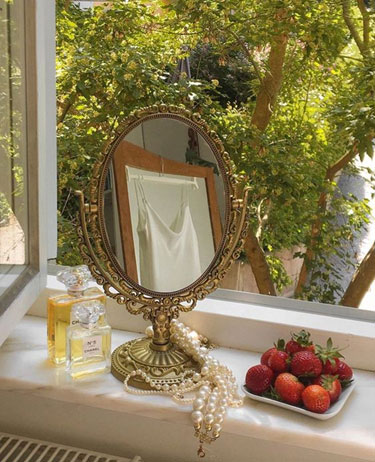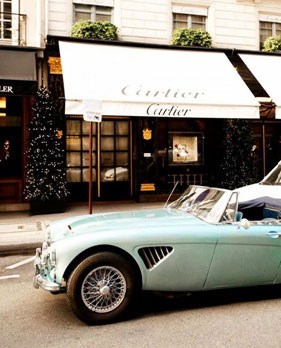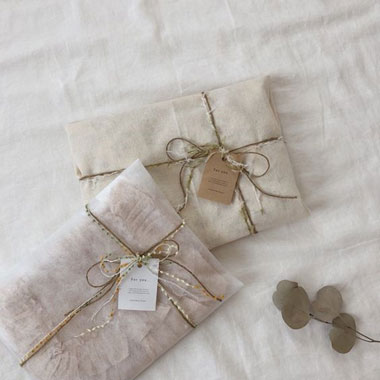The Future of Luxury
- 8th Sep 2020
- 2284
- 0

This crisis may be transforming the luxury industry for good, but it could also be a transformation for the good.
The luxury industry, like every other, will see a paradigm shift in it’s landscape owing to the spread of the pandemic. Consumer behaviour has already been influenced in favour of more economical and ecological outlooks. Luxury brands must cater to these shifts to remain relevant in an ever-changing world. This requires the skills of adaptability and creativity, along with the ability to innovate in line with current value systems. A few emerging trends will be discussed, the understanding of which is crucial for survival of the luxury industry.
It’s all about staying home

The Coronavirus has forced the world into isolation. Having found comfort in their homes, people look to it as their safe space. The luxury industry, too, is going through a similar situation. The pandemic and it is accompanying restrictions have severely disrupted global supply chains. This unprecedented disruption has brought businesses around the world to a halt. The procurement of raw materials and intermediate goods has become a Herculean task, forcing brands to begin producing locally.
In addition, purchase of luxury goods and services by tourists will be uncertain, at least in the near future as countries continue to maintain restrictions to prevent further spread of the virus.
Luxury that doesn’t cost the Earth

While the luxury industry was moving to a more sustainable approach prior to the pandemic, the sudden uncertainty and destruction has accelerated this to a huge extent. The present circumstances have urged humans to take a step back and live in tune with the natural world. Lifestyles have slowed down as have consumer values necessitating a shift towards an ecological approach.
Environmentally responsible and ethical products will be the choice for consumers and brands that wish to survive, will have to adapt. Sustainability initiatives will go a long way in establishing first and foremost, a forward looking, futuristic approach and then a loyal consumer base. Taking a step in this direction, fashion house Gucci is launching Off Grid, a collection using recycled, organic, bio-based or sustainably sourced materials.
In keeping with the idea of sustainability, there will be a move from seasonal trends to timeless pieces. With reduced financial resources, customers will be forced to reduce purchases, thereby propagating a demand for pieces that don’t seasonally go out of style.
Going digital

The world is going digital and it is no different for the luxury industry. Attracting customers to digital platforms through the same standards of customer service as in offline stores and a redefined luxury experience, will be the saving grace for luxury brands. Creating a sense of community and togetherness through e-commerce and digital engagement is the way to go as the world realises that when worst comes to worst, everyone is in it together. Effective digital marketing will boost online sales which is the prime requirement at the moment, but will also keep customers captivated enough to visit stores once they open and indulge in in-person services post the pandemic.
Building Businesses by Building Relationships

The pandemic has brought the whole world to a halt. Ironically, being forced into isolation has brought a shift in focus from ‘I’ to ‘We’ and ‘Us.’ This has warranted a need for luxury brands to move from transactional selling to building a lasting relationship with it’s employees, partners, communities and consumers. Empathy, understanding and trust will be the core values driving brand-consumer relations for the foreseeable future especially as a result of a sudden slowdown in life.
Customization and personalization will play a huge role in attracting customers given the demand for luxury experiences rather than just luxury pieces.
Redefining Brand Perceptions

The identities that luxury brands create during this time and the values they associate with will leave a lasting impression. Ethics will play a significant role in reaching out to and engaging consumers, with a large proportion of them being Gen Z, a generation that is waking up to the perils of not having strong values. Brands will have to adapt and shift their perceptions to changing realities, if they wish to stay relevant. Authenticity and taking cognisance of it’s roots will be key for creating brand identities that resonate with people. Put simply, the essence of the brand that is created will define it’s place in the present as well as in the future.
Luxury X Affordability

The financial implications of COVID-19 cannot be ignored and have been instrumental in driving the demand for what is called affordable luxury. The market for this segment is composed of the HENRYs who are significant in numbers. HENRYs are the High Earners Not Rich Yet, the new affluent consumer class. Well versed with technology, trends, values and experiences, they require brands to align with their beliefs, identities and concepts. Capturing this consumer base is vital which currently will necessitate catering to the desire for a blend between affordability and luxury.
In conclusion, as Jessica Hagedorn so wonderfully put it, “Adaptability is the simple secret of survival.”
 Anavi
Anavi


Comments
No comments yet.
Add Your Comment
Thank you, for commenting !!
Your comment is under moderation...
Keep reading luxury post